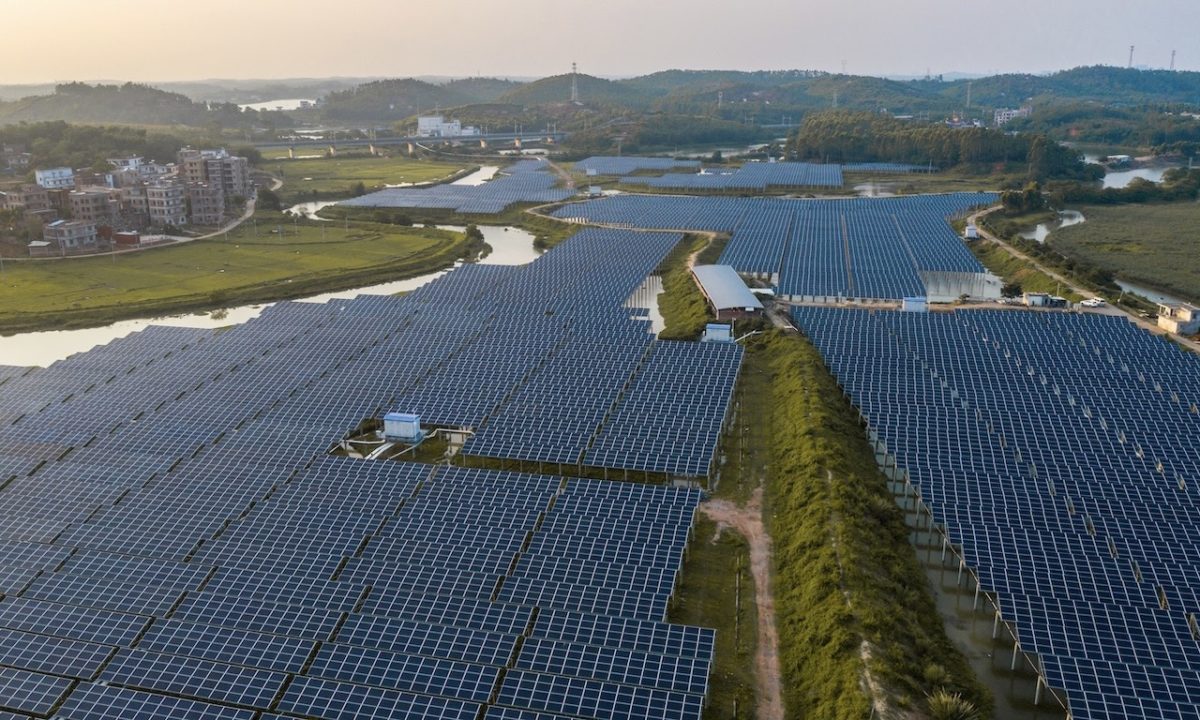Corporate renewable power purchase agreements (PPAs) are proliferating around the world. In the U.S., where virtual PPAs make up three-quarters of the market, tech giants like Google and Amazon are leading the charge. In Europe, where physical PPAs are prominent, renewable energy law reforms (particularly in Spain and Italy) have prompted growing numbers of transactions. And according to a new report from Wood Mackenzie (WoodMac), corporate renewable PPAs are “playing a bigger role in decarbonising Asia Pacific”.
Despite the Covid-19 pandemic, and despite only 10% of the Asia Pacific’s RE100 companies having signed corporate PPAs, WoodMac estimates that corporate renewable PPA volume more than doubled to 3.8 GW in 2020 compared to 2019. To put that figure in perspective, Hannah Hunt, impact director at RE-Source, told pv magazine that corporate PPA announcements in Europe for 200 reached a record of 4 GW, only 400 MW more.
WoodMac senior analyst Rishab Shrestha said “Corporate renewable procurement is on the rise and Asia Pacific is starting to play a bigger role with 10.9 GW of cumulative capacity procured until H1 2021.”
Australia, India and Taiwan are the regions leaders when it comes to corporate renewable PPAs, with a cumulative procurement capacity of 3.2 GW, 5.2 GW and 1.3 GW respectively. Taiwan, like Europe, booming thanks to energy reform laws. In the near future a similar boom may be seen in Vietnam as well, with the nation currently running a direct PPA pilot programme until 2022.
Shrestha also expects Singapore and Japan to join those ranks in coming years. “Singapore is the most developed procurement market in Southeast Asia but has limited land availability for renewable projects. Japan’s procurement is largely limited to onsite projects, but we expect policy updates by year’s end.”
According to Shrestha this growth is in good part thanks to decarbonisation targets (though not at the federal level in Australia of course), but more importantly, from “falling renewables premium and rising power tariffs in Asia Pacific making corporate renewable PPAs more attractive.”
WoodMac says the renewables premium has fallen across all markets in the Asia Pacific region and is expected to be 45% below power tariffs on average by 2025, which, after transmission charges, wheeling and the like, means an expected discount above 30% by 2025.
Of all corporate buyers, industrial offtakers accounted for 57% of the PPAs contracted in 2020, particularly companies in the electronics manufacturing and mining industries. Retail and service followed up with a 25.4% share, and the technology sector made up 16.9% as tech firms seek novel ways to power data centres and meet their decarbonisation goals.
“Interestingly,” continued Shrestha, “although RE100 memberships in the Asia Pacific have increased year-on-year, only 10% of the 99 member companies signed corporate PPAs in the region. Most Asia Pacific headquartered RE100 companies rely on onsite installation and net-metering solar projects to power their operations using renewables.”
Shrestha argues that businesses in the Asia Pacific regions are putting increasing pressure on regulatory bodies to ease corporate procurement regulations “towards offsite generation offering larger capacities.”
“While challenges remain,” concluded Shrestha, “policy, corporate ambition and economics are starting to tilt the balance towards a more conducive corporate PPA landscape for growth.”
This content is protected by copyright and may not be reused. If you want to cooperate with us and would like to reuse some of our content, please contact: editors@pv-magazine.com.









By submitting this form you agree to pv magazine using your data for the purposes of publishing your comment.
Your personal data will only be disclosed or otherwise transmitted to third parties for the purposes of spam filtering or if this is necessary for technical maintenance of the website. Any other transfer to third parties will not take place unless this is justified on the basis of applicable data protection regulations or if pv magazine is legally obliged to do so.
You may revoke this consent at any time with effect for the future, in which case your personal data will be deleted immediately. Otherwise, your data will be deleted if pv magazine has processed your request or the purpose of data storage is fulfilled.
Further information on data privacy can be found in our Data Protection Policy.